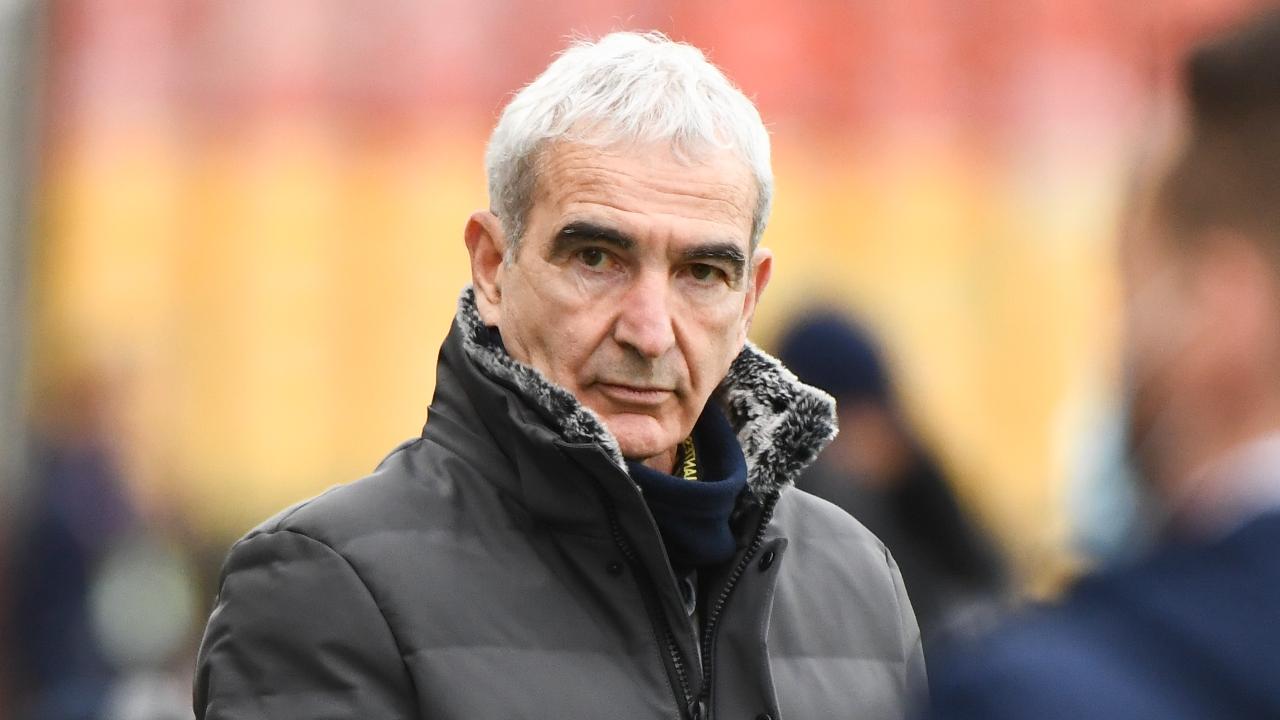Raymond Domenech: A Once-Great Coach’s Fall from Grace
 The tragic saga of a former footballing giant
The tragic saga of a former footballing giant
In the annals of football history, few names invoke as much emotion as Raymond Domenech. Attached forever to the infamous strike during the 2010 World Cup, his tenure as head coach of the French national team has become a cautionary tale in the world of sports management. Once heralded for leading the team to the World Cup final in 2006, Domenech’s fall from grace has been as swift as it has been dramatic.
The fallout from that catastrophic campaign in South Africa left indelible scars on the reputation of the French national team. It was a scandal steeped in pride, embarrassment, and shattered dreams, leading to Domenech’s near-total erasure from the football scene. He had become a pariah in the eyes of fans and analysts alike. Most of the players went on to rehabilitate their public personas, but for Domenech, the road back appeared perilously steep.
A Brief Resurgence at FC Nantes
Fast forward ten years, in a bold move that raised eyebrows across the league, FC Nantes appointed Domenech as their new head coach. This decision was tinged with irony considering his previous legacy—one marred by a legacy of failure. Waldemar Kita, the president of Nantes, extolled Domenech’s experience, proclaiming:
“I am convinced of the qualities that the former coach of the French team can bring to our club.”
Yet, the reality proved to be less favorable than anticipated. Just seven games into his tenure, where Nantes managed no victories, only four draws and three defeats, it was clear that the specter of past failures loomed large over Domenech’s head. The pressure was palpable, yet he maintained his belief in his credentials, suggesting that a little more time could turn things around. Unfortunately for him, patience was running thin.
The Bitter End
Domenech’s inability to secure a win felt like a malignant tumor that he could not excise, rapidly consuming any lingering goodwill from management. In statements that can only be described as a mix of defiance and delusion, he argued against the board’s decision to cut ties, claiming that he still had “the knowledge of the systems” to lead the club. However, results matter in football, and his return was anything but triumphant.
As anticipation turned into frustration, Antoine Kombouare stepped in after Domenech’s departure and promptly guided Nantes to a Coupe de France victory just two years later. This swift turnaround highlighted the stark contrast between Domenech’s philosophy and that of modern coaching—one that embraces strategic adaptation and the pressing need for results.
 Can FC Nantes discover their winning touch again?
Can FC Nantes discover their winning touch again?
It is a testament to the ever-evolving landscape of football management. Domenech’s failure at Nantes serves as a critical reminder that in football, as in life, failure is rarely a solo act. It requires a deep understanding of not only the game but also its players—something Domenech seemed unable to balance during his fleeting stint.
Lessons Learned
Reflecting on this saga brings to mind the importance of adaptability and continuous learning within football. The modern game is unforgiving; managers must embrace change and innovation to remain relevant. As I ponder the complexities of Domenech’s downfall, I can’t help but wonder how different things might be if he had been able to accept guidance and advice openly instead of relying solely on his past accolades. It reiterates a broader lesson applicable beyond the pitch: the past does not guarantee future success.
One can only hope that Raymond Domenech takes this opportunity to refine his approach and emerge wiser, whether in football or in life. The sporting world is forever changing, and only those who can adapt survive.
In the end, the painful irony may be that Domenech’s story could inspire a new generation of coaches to learn from his missteps. While the man himself has become emblematic of failure, what remains is an enduring truth: the road back from disgrace is often the hardest to navigate. Let us hope for a future where stories like Domenech’s serve as cautionary tales rather than tragic narratives.


 Photo by
Photo by 








